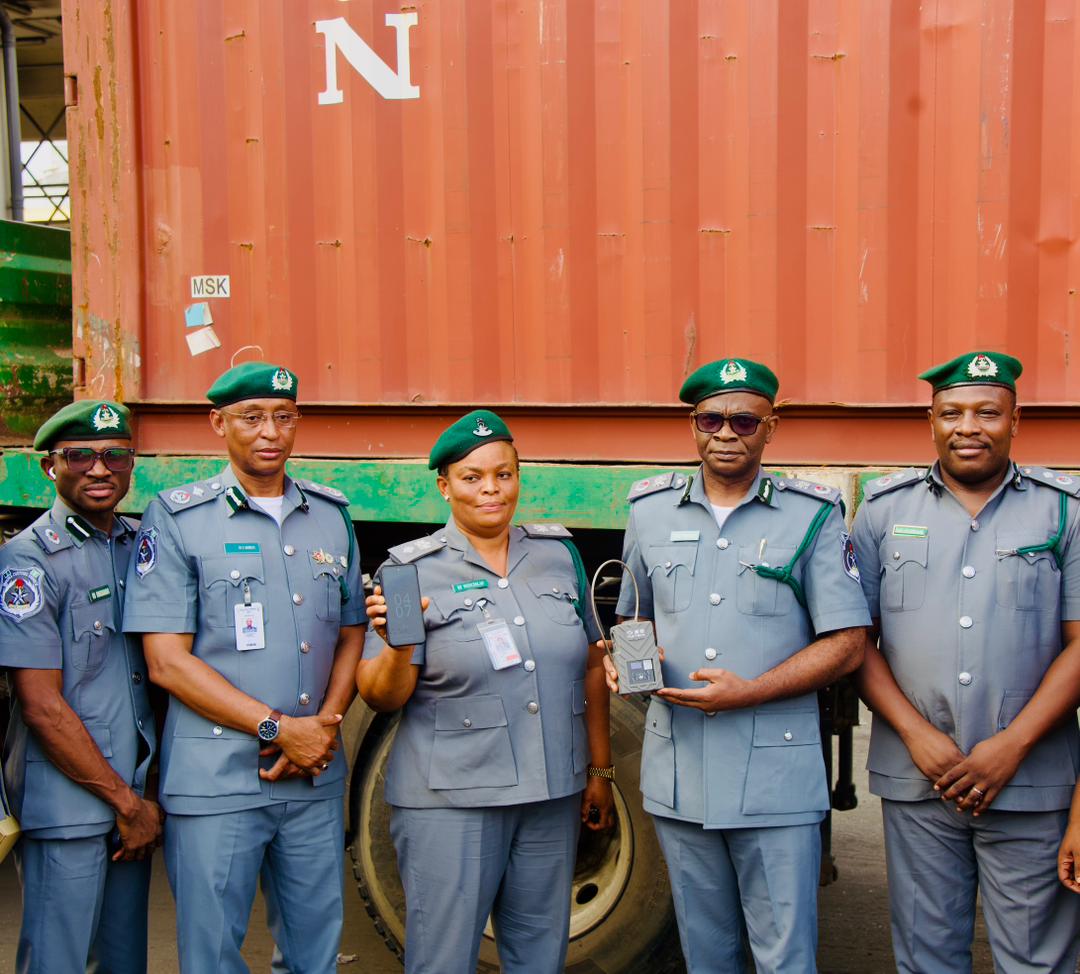The Apapa Area Command of the Nigeria Customs Service (NCS) has introduced a new Electronic Cargo Tracking System (ECTS), a digital innovation designed to enhance national security, improve revenue collection, and streamline trade operations across the country’s ports.
The system was launched at Apapa Port on Wednesday, with the pilot phase conducted using a container bound for the Kano/Jigawa Area Command.
The exercise marked the first live deployment of the technology for real-time cargo monitoring in Nigeria.
Speaking at the launch, the Customs Area Controller of Apapa Command, Comptroller Emmanuel Oshoba, described the ECTS as a strategic innovation that allows continuous monitoring of cargo from departure to final destination.
He explained that the system employs electronic seals and handheld devices to track containers, ensuring transparency, preventing tampering, and eliminating the diversion of goods during transit.
According to Oshoba, the Apapa Command is serving as the pilot centre for a nationwide rollout of the technology, which is expected to reduce reliance on physical escorts, as officers can now track cargo electronically.
He praised the Comptroller General of Customs, Dr. Bashir Adewale Adeniyi, for his reform-driven leadership and commitment to modernising the service.
Oshoba noted that as Chairman of the World Customs Organization (WCO), Dr. Adeniyi has been instrumental in aligning Nigeria’s customs operations with international best practices.
Providing further technical insight, Deputy Comptroller Aondona Christopher Fanyam, Head of the B’Odogwu Implementation Unit at Apapa Command, said the system ensures that containers remain sealed throughout their journey and can only be opened with proper authorisation at the destination point.
He explained that the ECTS offers three secure methods for unlocking cargo remotely through the central control system, and locally via an authorised handheld device, or by using a physical unlocking card at the destination.
These layered safeguards, he said, are designed to prevent unauthorised access and diversion of goods while in transit.
“The combination of remote monitoring, handheld verification, and physical authorisation reinforces cargo integrity, strengthens national security, and protects revenue,” Fanyam added.
